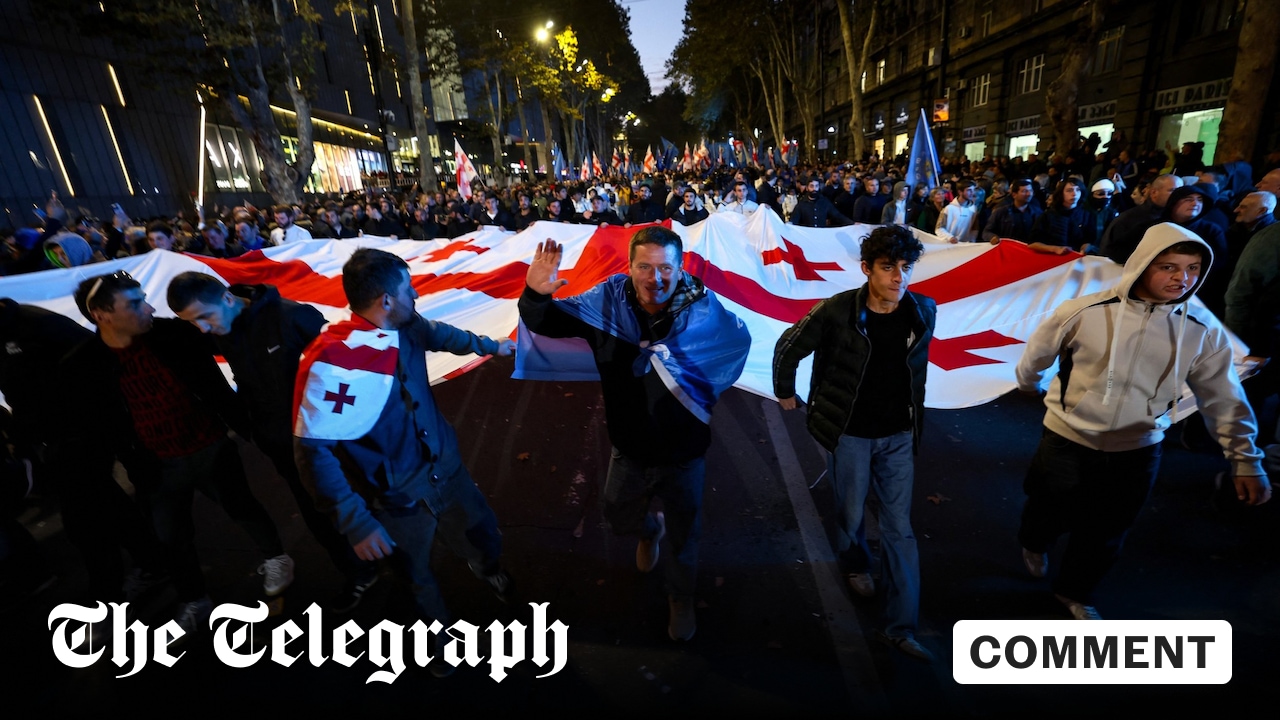However, right now it seems more likely that the conflict’s eventual end will involve a similar non-committal non-solution by Western powers as the end of the 2008 war in Georgia or the infamous Minsk Agreements.
Georgia’s troubled politics shows what two decades in a geopolitical limbo does to a nation, even if it possesses an utmost moral clarity and an understanding of its true allegiances. Fatigued with President Mikheil Saakashvili’s leadership, Georgians voted in a nominally pro-Western, yet Left-of-centre and somewhat populist, party – the Georgian Dream – in 2013.
Over time, Georgian Dream worked hard to entrench itself in power and its ties to Russia became deeper and more apparent. As the country’s president, Salome Zourabichvili – herself elected in 2018 with the support of the party – put it recently, Georgian Dream has become a Georgian nightmare.
If it wins (or steals) re-election, the ruling party, which now talks of banning opposition parties or conducting “Nuremberg trials” after the election, can be relied on to cement Georgia’s place within Russia and China’s sphere of influence for at least a generation.
But even if Georgians send the current government packing and Georgian Dream accepts the outcome, Russia will hold a final veto power over that result.
The Georgian story matters beyond Georgia – especially in Ukraine. As of now, most expect the war to end with a cease-fire or a formal peace agreement that will enable Russia to retain control over a significant portion of Ukrainian territory – without embedding the rest of Ukraine into NATO.
That would make it yet another non-committal non-solution to the problem, which will guarantee that even if Ukraine does not become a victim of Russian military aggression for another couple of years, the door for Russian interference will be ajar.
President Volodymyr Zelenskyy will leave office eventually. Against the backdrop of an underwhelming settlement forced on a reluctant Ukraine by Europeans and Americans, is it not possible, likely even, that a ‘Ukraine Dream’ party will emerge, built on fatigue and a sense of betrayal by the West – with ample financial and other support from the Kremlin?
Post-1991 Ukraine, after all, has a long tradition of amorphous, transactional, and corrupt politics, often in different rhetorical and ideological guises.
Leaving the nation unmoored from the West, as Georgia has now been for a generation since its Rose Revolution, is bound to leave to the same unhappy destination.
And while some may haughtily dismiss Georgia’s fate as being of little relevance to Western interests, it is impossible to make that case about Ukraine, a significantly large nation right on the doorstep of NATO and the EU.
What is exceedingly clear, however, is that in both cases our failures to act will add up to much more than just stains on the West’s moral reputation.
Dalibor Rohac is a senior fellow at the American Enterprise Institute in Washington DC
